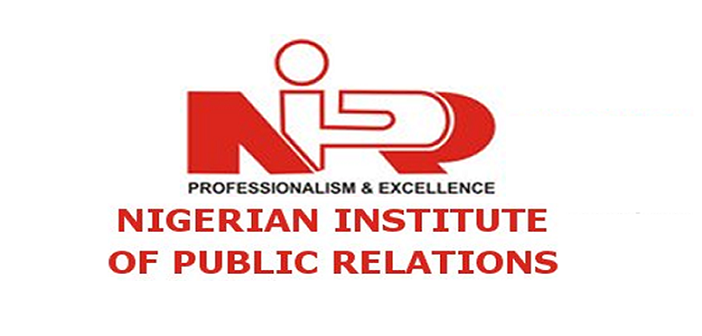Oluwaseyi Babarinde writes on five major tips for excelling in Nigerian Institute of Public Relations (NIPR) examinations.
The Nigerian Institute of Public Relations (NIPR) is the body, by law, responsible for the practice of public relations in Nigeria. Like every other professional body, the NIPR has the responsibility to set the standard of practice and make sure that its members and professionals are qualified, among other duties.
To become a professional public relations practitioner, there are steps one needs to take in order to achieve this. One of such steps available for a would-be practitioner is to write the institute’s professional examinations and pass.
The NIPR professional examinations, conducted twice a year, is in two parts. The Professional Examination 1 – A-10 paper examinations lead to the award of certificate in Public Relations, and the Professional Examinations 2 – A-five paper examinations leads to the award of Diploma in Public Relations.
The Significance of the Diploma Exams
The institute’s diploma exam is the third and final part of the NIPR professional exams, which is practical and case study oriented. Sometimes, organizations public relations practitioners or officers in the public relations field that are yet to write this exams can be compelled to go for the exams if they must stand the chance to compete with other colleagues at work for promotions or given higher tasks.
Below is the list of the five subjects in the diploma examinations:
- Public Relations Policy, Planning and Strategy
- Corporate/Product Brand Management
- Media Relations Dynamics and Management
- Stakeholder Relations Management
- Marketing and Advertising Management in Public relations.
READ ALSO: What you need to know about public relations
Because of the case study and practical nature of the diploma stage, the candidate will need to convince the examiner about previous lessons learnt on the principles of public relations to be able to get a good grade. You will need to impress the examiner that you can be a master in the art and science of the public relations profession.
Although, what script markers look for in professional examinations and the regular courses in higher institutions differs. In professional exams such as the NIPR, the examiner is most likely interested in the candidate’s presentation of ideas/thinking, strategy used in solving problems inherent in a case study, and the way the was approached. It is from this that the examiner makes decision on whether the candidate is abreast of the principle and practice of the profession or not.
In view of the above here are a view tips on how you can impress your examiner in your NIPR professional examinations, most especially the Diploma stage.
- Your Knowledge Counts
Your knowledge of the principles of public relations counts a lot when writing the Diploma exams. You should be able to convince the examiner that you understood PR courses taken during the introductory or certificate stage. Your knowledge of the principles, scope, functions, nature and tools of public relations are useful.
For example, how many text books and materials on public relations do you have at your disposal? How many text books and materials do you have on Public relations Principles, Planning and Strategy? Have you taken your time to look for more materials on Corporate/Product Brand Management? There are books and materials available for you at the NIPR State Chapters and Secretariats that you can buy. If you must convince your examiner, who is mostly likely to be an experienced PR practitioner, endeavor to increase your knowledge of the profession.
- Practical Experience
For candidates that are already working or doing public relations job or probably you have participated in assignments while you were studying, you already have the advantage of excelling in your exams. The probability that you will outline how to tackle a project is high when you remember what you have done before, and how you did it successfully. However, those with working experience writing the exams should not forget the underlying principles guiding the profession which they may have learnt during classes and tutorials, or while reading books and materials on public relations.
- Reading Newspapers, Magazines and Journals
One area you can focus more to excel in your examinations is reading newspapers, magazines and journals. Almost all general interests’ newspapers and magazines internationally have at least a page allotted to the Media Industry. Some publications name it Media or Marketing Communications and another could refer to it as “Brand communication” and so on.
On these pages, you will find stories and articles mostly topics related to the papers in the NIPR diploma stage. These stories are written by public relations and communications experts, and you have the advantage of fast increasing your knowledge and skills of public relations. It will also help you in answering practical that you may meet in your exams.
READ ALSO: 8 issues in Public Relations practice in Nigeria
So the next time you’re checking the newspapers or magazines, and you find headlines like “Mr President, Your brand needs Change!” read the article, you will find something to gain in relation to “Corporate/Product Brand Management.
The beautiful aspect of the newspapers and magazines integrated marketing communications stories and articles is that they are easy to identify with the way there headlines are set. Read and make copies of these articles, and you will be doing yourself much good which you’ll later realized after writing your papers.
- Past Questions
If you have past questions of previous examinations with you, you will be doing yourself a lot of good because you will get to know the rationale behind each paper’s questions and what is being expected in a question.
Take a look at this question:
“A brand is a name promoted to the level of public recognition. Goodluck Jonathan was a presidential candidate of the People’s Democratic Party in the last general elections in Nigeria. Which one is a brand: Goodluck Jonathan or the People’s Democratic Party? Explain.”
This type of question will make you prepare for likely questions on how, as the Image Maker of President Muhammadu Buhari, you can correct the perceived negative impression about the authenticity or validity of his integrity, considering some of the allegations of corruption levelled against critical key members in his administration, and why he always appear too slow to take decisions on such matters. When you have questions like this in your exams, your examiner will want to see how well you understood lessons in media relations dynamics management and crisis management ability.
Ask for past questions of different diets of the diploma exams at the NIPR secretariat, it won’t cost you much financially.
See a few other questions from previous exams below
“Distinguish between corporate governance and corporate social responsibility. (ii) Does the implementation of corporate governance formalize the responsibility of corporate organization to stakeholders?”
“Public relations practice like other professional practice is facing unlimited challenges. What do you think are the critical challenges facing the pr practice today? Please support your answer with proven examples in the country or elsewhere.”
“As stakeholders in a country’s political development, a team of observers indicated interest to monitor the national election of the country. What protocol activities would you suggest for an effective visit of the guests until their return.”
- The Internet
The last tips here that you need to consider is the use of internet. The availability of the internet is one of the greatest tips you have at your disposal to excel in your exams.
The internet has so much contributed to the practice of public relations in Nigeria (and the world at large) that the public relations profession has, over the years, evolve from the dark age stage to the present acceptance age stage. Although, whether the profession has attain the golden age stage is debatable, but the point is that the role of the internet can not be overemphasized. With the use of the internet, many searches through it to read on any topic or subject their interests. There are programmes and courses that are facilitated online through the use of the internet.
So, when you type “Stakeholder Relations Management in public relations” or “Marketing and Advertising Management in Public Relations on a browser or search engine, you’ll be surprised at the arrays of answers and materials that you’ll be feed with. Thereby, enjoying the opportunity to learn from experts around the world and even get expose to the practical examples of public relations in developed countries. Why not maximize the advantage of the internet for excellence in your exams and widen up your knowledge of the public relations profession!





